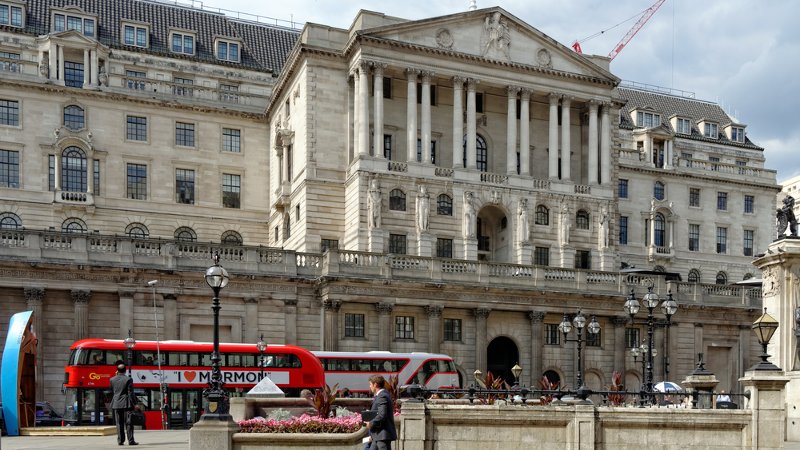Business management consultancy Capital Economics doesn’t expect there to be a rate rise until the Q3 2020, while an ING Group economist made a tentative prediction of Q1 2020.

Economists don’t expect interest rates to rise until next year, despite hawkish comments coming from members of the Monetary Policy Committee.
Earlier this month, three members of the MPC warned that the UK is on track to raise interest rates multiple times in the next couple of years, with one saying they may need to rise faster than the markets expect.
However business management consultancy Capital Economics doesn’t expect there to be a rate rise until the Q3 2020, while an ING Group economist made a tentative prediction of Q1 2020.
Ruth Gregory, senior UK economist at Capital Economics, said: “Recent communications have been more hawkish, saying the markets are underestimating the pace in which rates will rise.
“The message is markets have been too sanguine.”
But she added: “In terms of our view, in a Brexit deal scenario we think rates will rise three times by the end of 2021.
“We think the next rate hike will come in Q3 2020 when the Bank of England has more information on how the economy has performed.
“Obviously it depends on what happens with Brexit. We think rates would be more likely to be cut if there’s a no deal Brexit.”
Gregory said interest rates will likely reach 1.5% by 2021.
But James Smith, developed markets economists for ING, appeared to take the comments from MPC members more seriously.
He said: “It’s clear they want to raise interest rates.
“We think the first rise will be in the first quarter next year, but that’s not with a particularly high conviction at the moment.”
Smith added: “The markets think Brexit is going to keep stopping them.
“From the Bank’s perspective you can draw parallels to what happened in 2017, when markets though ‘there’s no way they are going to be able to hike interest rates’, but in the end they turned round and said ‘we are going to’ – and they did, twice.”
Smith noted that if the Brexit deadline was pushed back six months from October 2019, that would likely delay rate rises.
Another factor is whether a new Prime Minister would push for a no deal Brexit, as that would make a general election more likely, which would add more uncertainty.
Global factors could also influence whether the Bank feels it can hike interest rates. For example, President Donald Trump’s tariffs on Chinese goods and tariffs on car imports could have a negative impact on the global markets.
The Bank of England will make the announcement on whether the MPC has opted to raise interest rates on Friday – though the committee is widely expected to keep them on hold.
Comments from the Monetary Policy Committee
As was widely reported last week, MPC member Michael Saunders gave a speech to Solent University where he warned that interest rate rises are not entirely dependent on Brexit.
He said: “We probably would have to return to something like a neutral stance earlier than markets project.
“I want to stress that the MPC does not necessarily have to keep rates on hold until all Brexit uncertainties are resolved.
“There would be costs if we delay tightening until all the potential warning signs across pay, capacity and prices are flashing red.
“Such an approach would make it less likely that tightening would be limited and gradual, and more likely that the economy would face a painful adjustment.”
Similarly, Ben Broadbent, deputy governor and MPC member, said to a parliamentary committee last week: “Were the economy to develop in line with our projection... interest rates would probably have to rise by a little more than what was in the curve at the time [May] of the forecast.”
And the week before the Bank’s chief economist, Andy Haldane, wrote in The Sun: “For me personally, the time is nearing when a small rise in rates would be prudent to nip any inflationary risks in the bud.
“Acting early with a rate rise acts as insurance against the need for faster and larger rises in interest rates in future.”
Rob Gill, managing director of brokerage Altura Mortgage Finance, responded to noise from MPC members and economists by talking up the importance of Brexit, regardless of Michael Saunders’ message.
He said: “MPC members are assuming there will be an orderly Brexit and they can raise rates based on fundamentals like employment figures and inflation.
“But most economists are being more realistic and saying interest rates will need to stay down or even fall until Brexit is sorted.
“After the referendum we saw a cut from 0.5% to a quarter percentage. When Brexit happens, it seems realistic that interest rates will have to go back to a quarter of a percent.”



